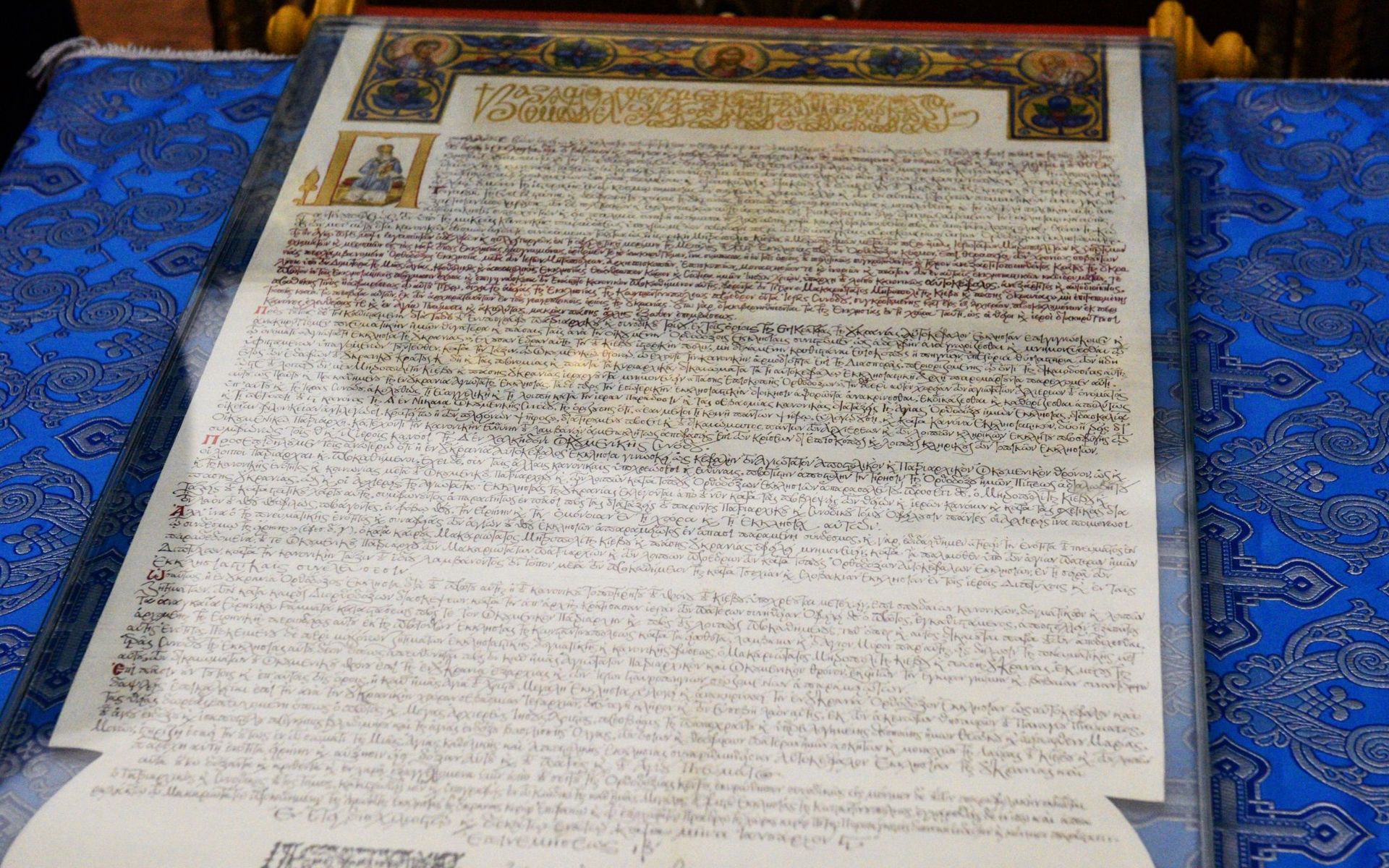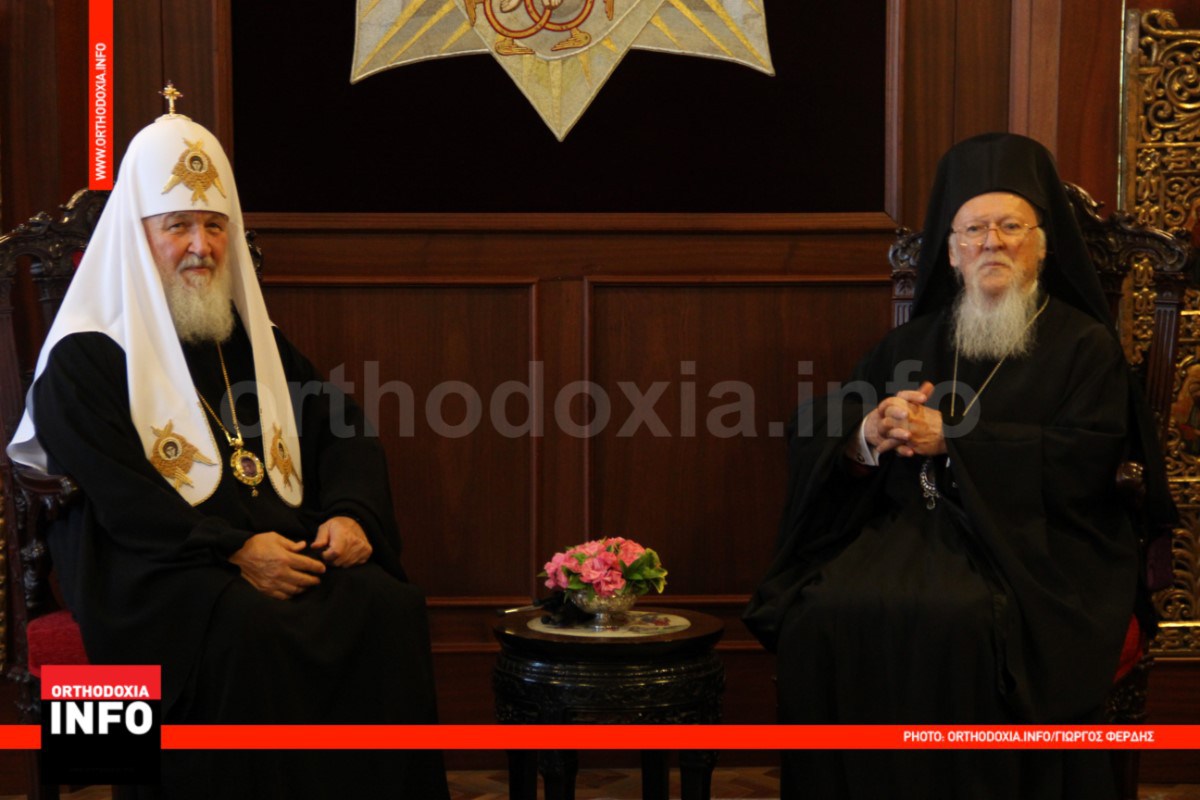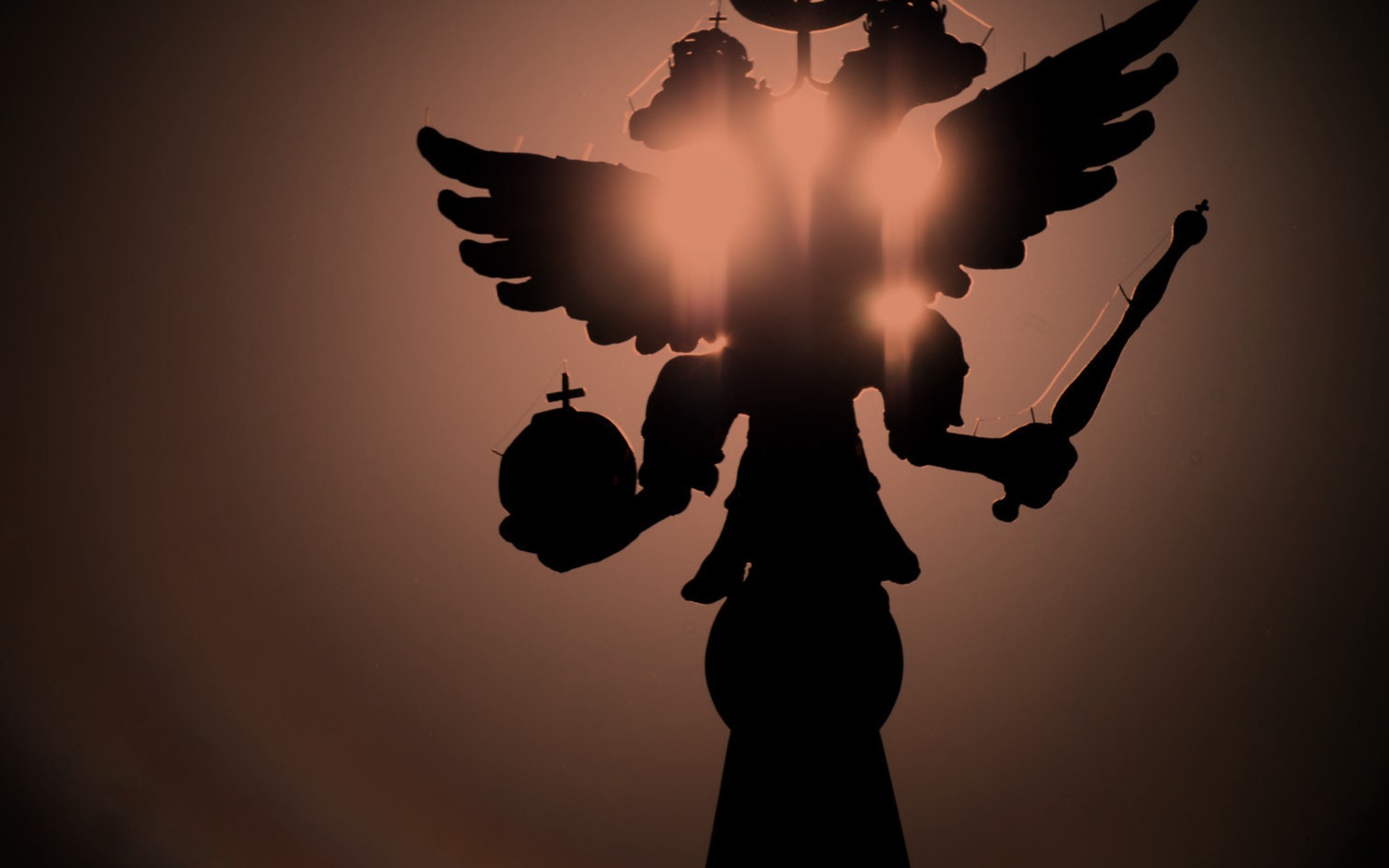Some were disappointed that the Constantinople Patriarchate did not make the Ukrainian church autocephalous at its meeting on May 31, especially since Ukrainian President Petro Poroshenko had said in April that the independence of Ukrainian Orthodoxy was coming “very quickly,” Aleksandr Soldatov says.
But such people ignored not so much the malevolent influence of Moscow on the process than the Byzantine slowness of any step like this, the Russian analyst writes for Portal-Credo.ru; and they need to remember that Ukrainian autocephaly is just as inevitable as the restoration of the USSR is impossible.
It may not be as quick or problem-free as many Ukrainians had expected, however. But that should not come as a surprise, Soldatov says, given that the complete independence and flourishing of Ukraine “in the democratic European countries is still far from the finish line” as well. “But the logic of history is the same” in both cases.
The Universal Patriarchate in Constantinople sent a clear signal in that regard the day before many expected it to recognize Ukrainian Orthodoxy as autocephalous. On May 30, it assumed responsibility for resolving the status of the Macedonian Church, thus effectively taking the Ohrid Archbishopric out from under the Serbian Patriarchate.
That suggests the direction things are moving for Ukraine because “the situation with regard to the self-proclaimed autocephaly of the Macedonian Church and the self-proclaimed autocephaly of the Ukrainian Orthodox Church of the Kyiv Patriarchate is identical,” even if the scale of the two churches is different.
Indeed, Soldatov says, the Ukrainian case is easier for Constantinople because it does not require a change in the name of the new autocephalous church. In the case of the “Macedonian” one, the new patriarchate is certainly going to be given a different and more neutral name in deference to Greece.
“The beginning of the process of Constantinople’s resolution of the status of the Macedonian Church means a break in the relationship between the Constantinople and Serbian patriarchates,” the Moscow analyst continues, especially as it is now likely that the Universal Patriarchate will follow this move by recognizing Bosnia-Herzegovina and Montenegro too.
What this all means, besides good news for Ukraine, is that conditions throughout Orthodoxy are moving to a break between World Orthodoxy 1.0 and World Orthodoxy 2.0. If the former will remain centered on Constantinople, the contours of the later, which Moscow hopes to head, are also emerging.
The Moscow Patriarchate has been trying to keep in its corner the Antioch Patriarchate because of its traditional center in Syria; but now most of the congregations of that church are in the United States and so are less likely to go along with Moscow, however much the politics of Syria dictate otherwise.
Moscow expected to keep the Bulgarian Patriarchate in its corner, but Kirill’s disastrous visit to Sofia undermined that possibility. It could pick up the support of the Alexandria Patriarchate if it takes over the funding of that church’s missionary activities. (At present, Alexandria has few parishes other than missions, and its expenses vastly exceed its income.)
The Georgian Patriarchate has generally been close to Moscow, and it no doubt is pleased that the Moscow Patriarchate has not followed the Kremlin in insisting on separating out control over Abkhazia and South Ossetia. The Russian state does, but the Moscow Patriarchate for obvious reasons doesn’t. Moscow has also lost most of its other positions in eastern Europe.
Given all this, Soldatov says, after the first month of the pursuit of autocephaly for Ukraine, the picture of Orthodoxy in the world looks approximately like this.
“If Constantinople isn’t able in July to proclaim the Ukrainian Church autocephalous, this process threatens to drag on for several years. But if it is, then a global split of the Orthodox world that Metropolitan Hilarion warned out becomes extremely likely,” with one part headed by Constantinople and a second lesser part by Moscow.
According to Soldatov, “this split has not only geopolitical and jurisdictional-administrative foundations but also cultural, historical and theological ones.”
Since the collapse of the Russian Empire, Orthodoxy has displayed two vectors of development: “liberal and conservative, ecumenical and exclusivist, pro-Western and autarchic.” Keeping them together in a single “’canonical field’” is “extraordinarily difficult, given that both trends exist in almost all churches.
Now, however, there is a chance that these two trends will be reified into “two ‘Church families,’ each of which will consider itself canonical but which will move along two contradictory vectors,” Soldatov says, a development that could lead to the creation of “’parallel’ Orthodox jurisdictions in all the countries having an Orthodox presence.”
Paradoxically, the conservative Orthodoxy 2.0 would be led by Moscow Patriarch Kirill, “a convinced ecumenist,” something that could land him in difficulties in Russia. That is because newly enthroned Metropolitan Tikhon would be a much better fit given that he has never shown himself interested in ecumenism.
“The international self-isolation of Russia presupposes the creation by it of ‘parallel structures,’ both in the sphere of economics and economics and in religious life,” Soldatov says. “From the geopolitical point of view, today is the most favorable moment for the creation of ‘World Orthodoxy 2.0’ with a center in Moscow and with an extremely isolationist, ‘old believer’ ideology like ‘the Russian world.’”
Kirill doesn’t fit well in that situation, and thus, “however strange it may seem, the path for the preservation by Kirill of his position lies in the search for a compromise with Constantinople on the Ukrainian issue. That would allow Kirill to retain as a source of his legitimacy ‘recognition by world Orthodoxy’ and ‘the preservation of Orthodox unity.’”
That works to Ukraine’s benefit as well, Soldatov suggests.
Read More:
- Inside Ukraine’s appeal for Church autocephaly
- Why Ukraine needs a free and recognized Orthodox Church
- Can anything be done in Ukraine with the so-called “canonical” Moscow Patriarchate?
- Moscow Patriarchate’s moves strengthen Russia’s hand in Ukraine, Kryuchkov says
- Moscow Patriarchate still has more parishes in Ukraine than its Kyiv counterpart but fewer followers
- Moscow Patriarchate taking control over property of its parishes in Ukraine to block them from leaving
- Russian court orders demolition of Ukrainian Orthodox Church (Kyiv Patriarchate) in Moscow Oblast
- Scholar: Russian Orthodox Church Moscow Patriarchate supports repressions, militarism





